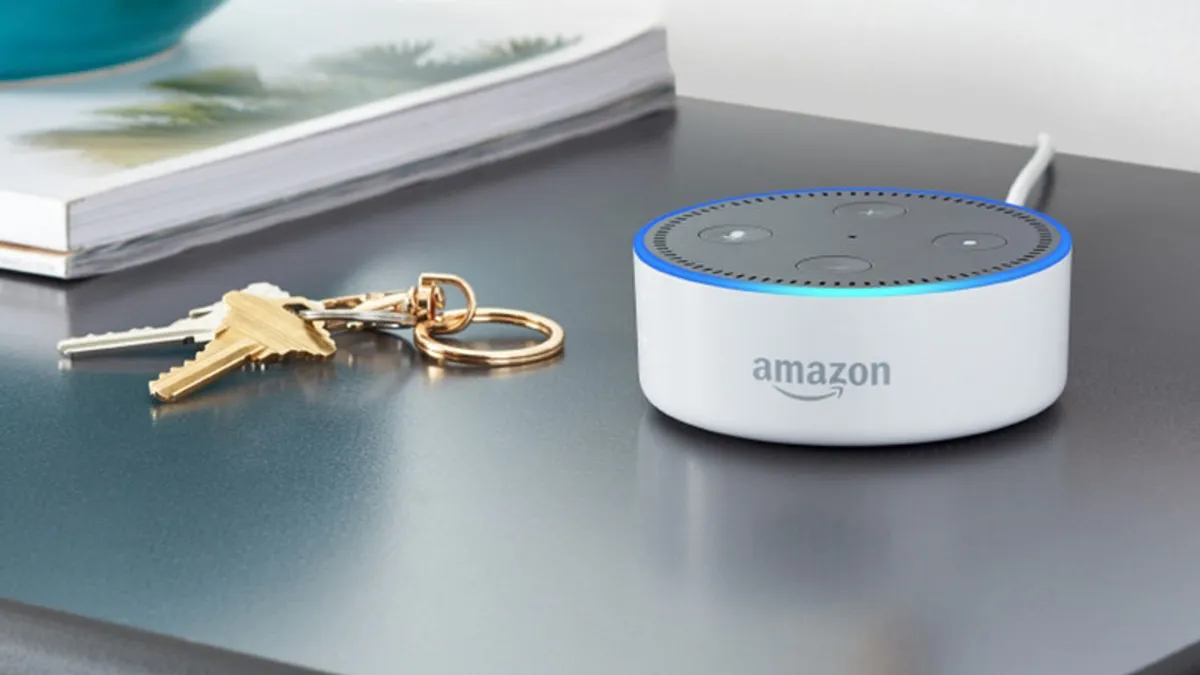Brief:
- Consumers increasingly prefer to interact with voice assistants and chatbots than with humans, especially when researching products or responding to customer service questions after making a purchase. About 70% of people will gradually use voice assistants to replace visits to a store or bank in the next three years, per a survey by the Capgemini Research Institute, the in-house think tank of the tech consulting firm.
- Consumer satisfaction with voice assistants also has grown in the past two years. The percentage of people who said they were satisfied with a voice-based assistant like Alexa or Siri on their smartphones increased to 72% this year from 61% in 2017. Satisfaction with a voice-powered smart speaker like Google Home or Amazon Echo rose to 64% this year from 46% in 2017. For voice-enabled smart displays like Amazon Echo Show, consumer satisfaction jumped to 57% this year from 44% in 2017.
- The percentage of people who used voice assistants to buy products climbed to 53% this year from 35% in 2017, while making payments increased 20 percentage points during the comparable periods. During that time, customer service interactions after making a purchase rose to 52% of consumers from 37%, the survey found.
Insight:
Chatbots and voice assistants have been derided for providing limited functionality and stilted conversations that frustrate consumers. Capgemini's survey indicates that voice assistants have come a long way in the past few years to improve customer satisfaction and are on course to save money for companies by automating a broader range of services now handled by humans.
More than three-quarters of businesses (76%) have seen quantifiable benefits from voice or chat assistants, while 58% said that the benefits had met or exceeded their expectations, per Capgemini. Some businesses have been able to cut their customer service costs by more than 20% as consumers turned to voice assistants instead of humans, but that benefit hasn't translated into broader adoption among companies.
Fewer than 50% of the top 100 businesses in the automotive, consumer products and retail, and banking and insurance industries have voice assistants or chatbots, Capgemini's survey found. A separate study found that chatbots and artificial intelligence (AI) are currently used a by a small fraction of retailers, but 76% of merchants are either planning to roll out the technology or consider an implementation in the next few years. The cost of developing the technology remains an impediment, suggesting that tech companies need to develop solutions that make chatbot and AI development more accessible.
Capgemini recommends that businesses find the right balance between human and robotic interactions. As consumers grow to trust the technology, they may be more willing to extended their engagement with voice assistants and chatbots.
More than two-thirds (68%) of consumers said a voice assistant frees them to multitask and accomplish tasks hands-free, while 59% said personalization of the technology has improved. Capgemini also recommends that businesses equip voice assistants with additional features such as images and videos that can be seen on mobile devices or smart displays, as almost two-thirds of consumers said the voice experience would be improved with the addition of images, videos or more textual information.













